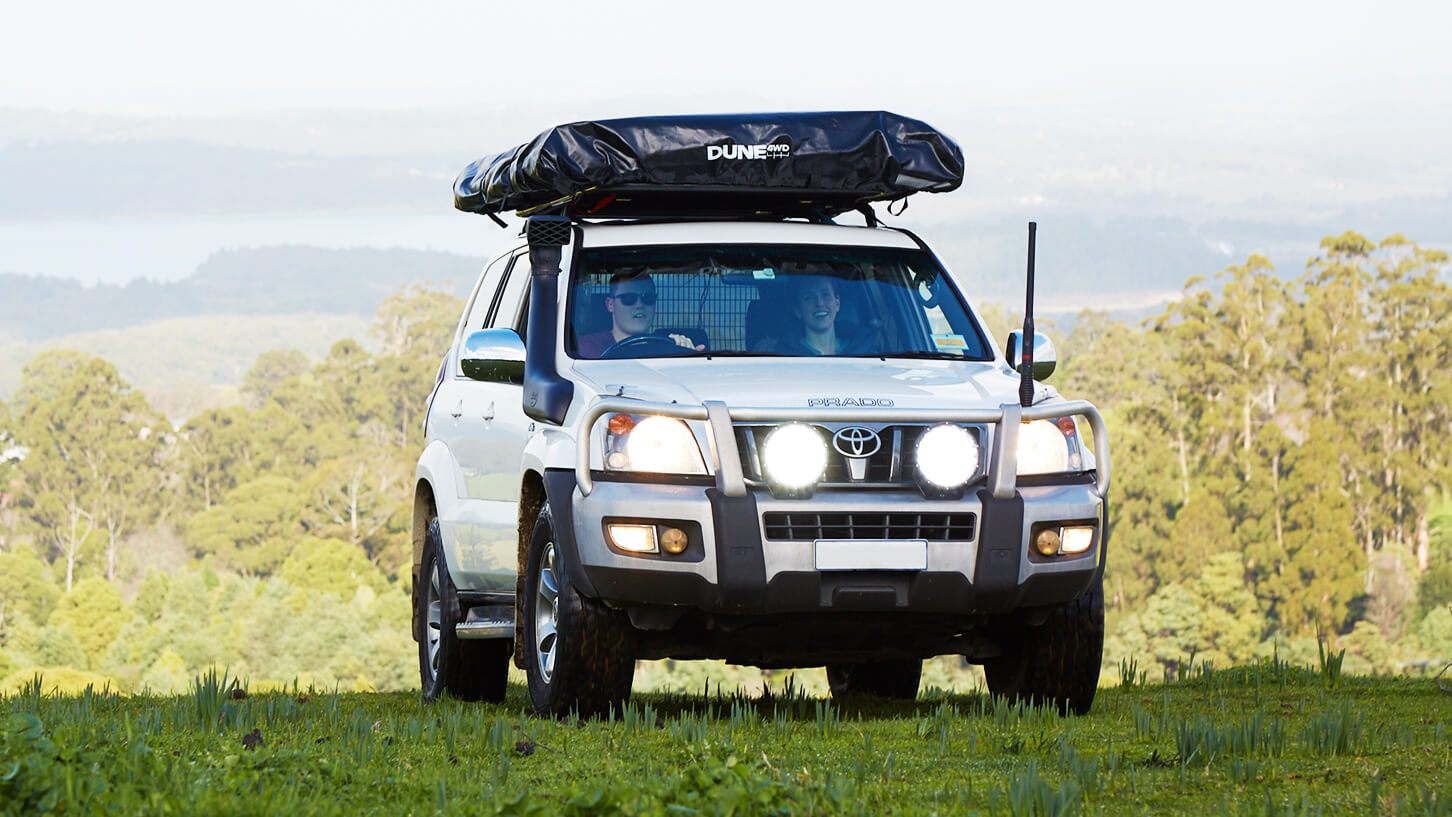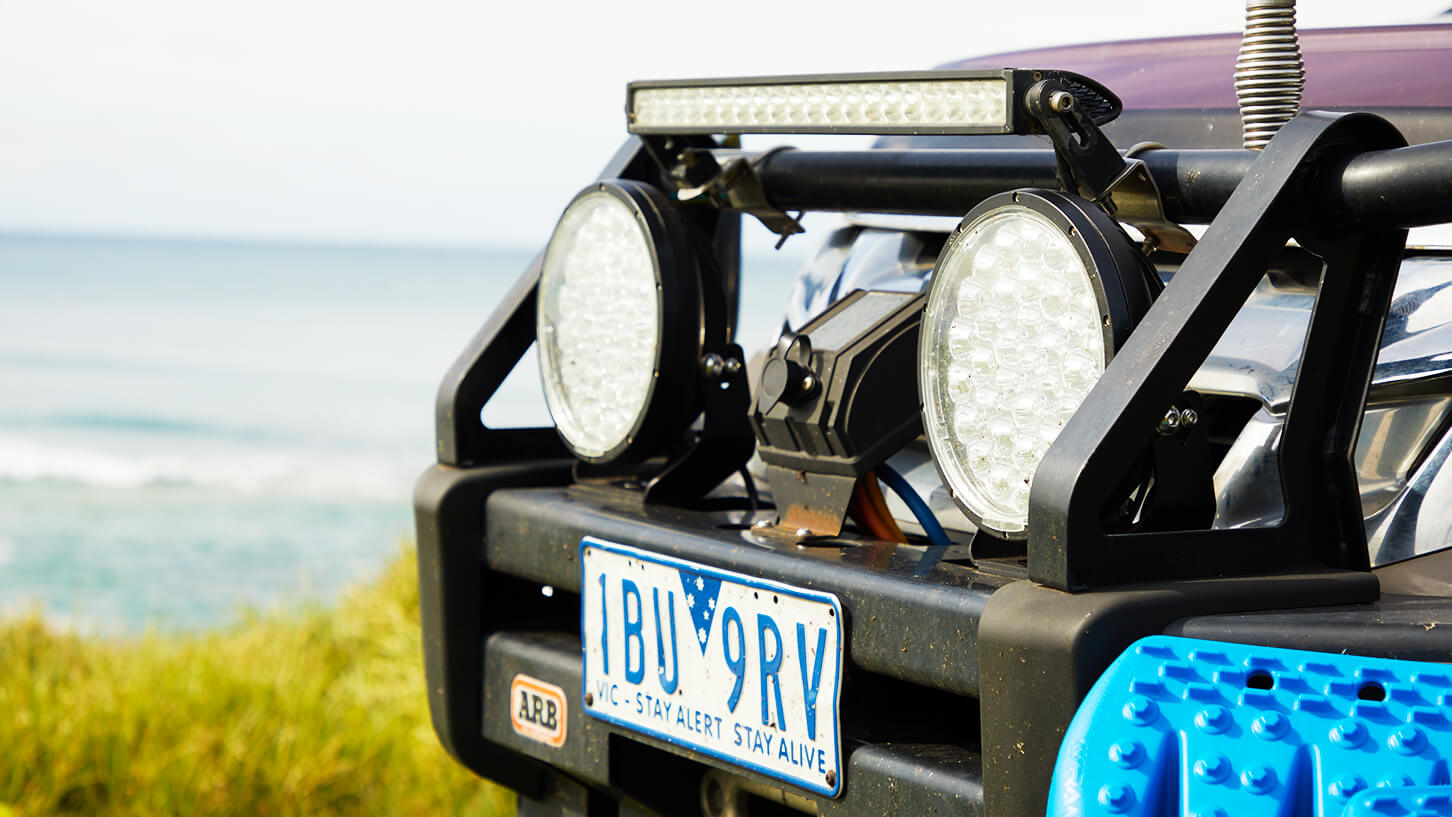| Your browser is not supported. | ||
|
Please browse our site using any of the following options:
| ||
What to look for in a 4WD GPS

Getting off grid and heading out into the wild has got to be one of the best things about 4x4ing - it's probably the reason you bought a 4WD in the first place, right? But when you get away from roads, other people and civilisation in general, it is important to have the right equipment and know how to use it. And one of the most essential pieces of kit is an off-road 4WD GPS.
There are several reasons why a standard GPS just isn't going to make the grade if you plan on doing some serous 4x4 touring. So, what should you look for in a 4WD GPS for off-roading? There are a few things to consider, so let's run through them.
Topographic mapping
The biggest difference between a 4WD specific GPS and a regular, on-road GPS is in the mapping content they contain. With a standard GPS, you'll get clear directions with prompts telling you where to turn etc. But the mapping itself doesn't contain a great deal of detail about the terrain or surrounding area.
What this means is that the GPS can show you where the roads are and where they go but not a whole lot more. And while they do show things like buildings and landmarks, much of that information isn't particularly helpful for visual navigation - especially when you leave built up areas behind.
A good GPS for 4WD touring will have topographic mapping in addition to street mapping, and will show you contour lines, geographical features, unsealed roads and 4WD tracks. While an on-road GPS will usually include basic details on some unsealed roads and the like, most of them will show next to nothing when it comes to 4WD and national park tracks and this is often what you want the most detail on.
Track data, for both off-road tracks and unsealed roads, as well as the actual topographic information that allows you to read the terrain and navigate by seeing what is around you (as you would with a paper map), is a major advantage of using a 4WD-specific GPS. When there are no buildings around, knowing the lay of the land like where mountains, rivers etc. are in relation to your position is vital.

Points of interest
Points of interest is another important feature an off-road GPS should include. While most GPS will include points of interest such as cafes, monuments, and some businesses, once you get away from towns and cities, this information gets pretty thin.
On the other hand, an off-road GPS will provide information on points of interest like lookouts and attractions - the things people are actually going out there to see in a lot of cases. But perhaps even more importantly, a 4X4 GPS will show you the locations of things you'll need when you're touring such as campsites, caravan parks, dump points and 24hr fuel. This information is vital when you're out there because it allows you to find things as and when you need them.
Stand-alone vs. built-in units
While there are undoubtably some advantages to integrated in-dash systems - you get everything in the one unit (music, Bluetooth etc.) for example, and it's all automatically connected to the car.
The problem is, many pre-installed units are blocked to third party input, so you're unable to install new or updated maps. If you want greater detail, or another brand's maps on your built-in factory unit, there's not much you can do other than buy an aftermarket in-dash unit that will allow you to load off-road maps.
Much of it does come down to personal preference but it's a good idea to think of all the activities you'll be doing while you're out bush. Many people prefer to have a
portable navigation device (PND) that you can attach to your vehicle windscreen but take off and carry with you whenever you need to. This allows for greater flexibility as you can move it between vehicles and take it with you when you go hiking, exploring or hunting.
App vs. dedicated device
Many 4X4 enthusiasts will use an app on a mobile phone or smart device instead of a dedicated GPS unit. There is nothing wrong with doing it this way, but if you're planning to go with this option, there are a few things you should consider first.
For starters, the hardware in a dedicated unit is made solely for that one purpose, it'll have maps preloaded onto it and everything you need integrated in the one unit and designed to work as a cohesive system. An app on the other hand, may not be made specifically for off-road touring, so may not have all the functionality or information you need.
When you go into areas where there's no mobile coverage, you need to ensure you have an app that allows offline mapping and make sure you have the maps downloaded to your device, if you haven't done this and you lose your internet connection, you could run into trouble.
If you're downloading all your maps to your device, you also need to make sure you have enough storage space on that device. The battery of your device is likely not going to last as long either, so that's something to keep in mind if you want to use it outside of your vehicle.

Practice using your GPS
Whatever off-road GPS solution is right for you, it's incredibly important you fully understand how to use it, how to trouble shoot and what to do if it fails, before you go driving off into the wilderness.
Before you set off on your first big trip, it's a good idea to do a practice run. Take the 4x4 for a spin off road, even if it's just for a couple of hours. This way you'll be able to get used to using the GPS and become familiar with how geographic features like hills and gullies are represented on a topographic map. The last thing you want on a big trip is to be trying to decipher a map you don't know how to read as soon as you leave the bitumen - especially if you want to set up camp before dark!
Enjoy the freedom
There's a reason 4WD touring is so popular: it's amazing fun and provides a level of freedom that no other mode of transport can offer. You can go where you want, when you want. Just bear in mind that it's only fun if you know what you're doing - getting lost in the Australian bush is no one's idea of a good time! You're sure to discover some truly amazing places when you're out there, just make sure you know how to find your way home too.